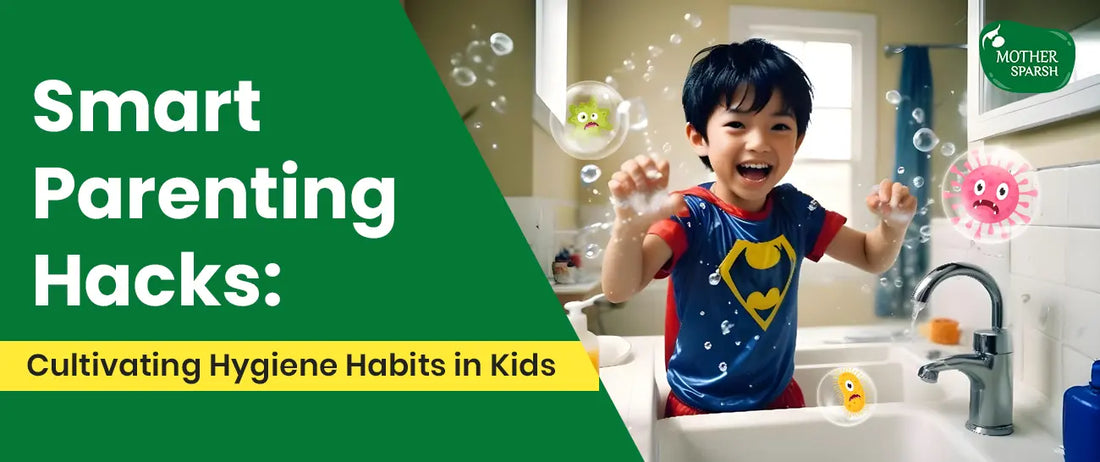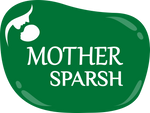
Fun Ways to Cultivate Personal Hygiene Habits in Your Kids!
Table of Contents
Hey there, mothers! Are you tired of the tantrums that your naughty little munchkins throw over handwashing and toothbrushing? We get it, teaching your kids about hygiene can feel like a real struggle. But imagine turning those everyday struggles into fun adventures that your kiddos look forward to. Crazy, right?
Buckle up, because you're about to discover a world where germs are villains, your kid is the hero and soap is their superpower in their very own hygiene adventure. Ready to nurture growth, boost immunity, and kick those "icky" habits aside, then let’s get started!
The Importance of Hygiene for Preschoolers
Good personal hygiene for kids is more than just keeping clean, it's the foundation for lifelong health and self-confidence. Teaching your preschooler basic hygiene habits early on can reduce their risk of illness and also boost their self-esteem. By instilling these practices, you're helping them with building essential life skills that go beyond cleanliness.
These habits not only keep your kiddo’s skin and teeth healthy but also boosts their confidence in everyday social interactions. When children learn good hygiene habits at a young age, they develop a sense of responsibility and discipline which also helps them build independence and pride in their abilities. Remember, your little one's hygiene journey is an important step in their overall development and well-being.
How Good Hygiene Promotes Learning and Development
Good hygiene habits for kids are essential for their overall growth and success in school. When children practise personal hygiene for kids, they're less likely to fall ill, resulting in fewer missed school days. Regular attendance allows for uninterrupted learning and development.
Moreover, mastering basic hygiene routines builds self-esteem and teaches valuable life skills. As kids learn to care for themselves, they gain confidence and independence, which translates into better classroom performance.
A clean environment also plays a crucial role. When classrooms maintain high standards of cleanliness, it creates a more conducive learning atmosphere. This not only reduces distractions but also reinforces the importance of hygiene, helping children internalize these healthy habits for life.

Teaching Healthy Habits
Preschoolers are like sponges, soaking up new information and habits every day. This makes it the best time to instil personal hygiene habits for kids. By teaching your kiddo to wash their hands regularly, brush their teeth, and keep themselves clean, you're not just preventing germs - you're laying a foundation for lifelong healthy habits.
Remember, as a parent, you're their role model. By practising basic hygiene yourself, you're setting a powerful example for them to follow along.
1. Make Hygiene Fun and Engaging
Let's face it, kids aren't exactly thrilled about scrubbing their hands or brushing their teeth. But with a little creativity, you can turn these essential habits into enjoyable activities. Try using a fun and fruity handwash for washing hands or a flavoured yet safe toothpaste for toothbrushing. Remember, the goal is to make hygiene feel less like a chore and more like playtime.
2. Lead by Example
Your little ones are always watching, so why not use that to your advantage? Make a show of washing your hands before meals or after coming home. Brush your teeth alongside your child, turning it into a fun family activity. When kids see you prioritizing hygiene, they're more likely to follow suit.
3. Create a Reward System
A little positive reinforcement goes a long way. Consider creating a sticker chart for completed hygiene tasks. Once they've collected enough stickers, reward them with a small treat or extra playtime. This not only encourages good habits but also teaches them about goal-setting and achievement.
4. Explain the 'Why' Behind Hygiene
Kids are naturally curious, so satisfy their hunger for knowledge by explaining why hygiene is important. Use simple terms to describe how germs work and how good habits keep us healthy. You might even make it into a fun science lesson, complete with a magnifying glass to "hunt" for invisible germs!
5. Keeping Your Child's Environment Clean
Regularly disinfect high-touch surfaces like doorknobs and light switches to significantly reduce the spread of germs. Create a fun, consistent tidying routine to make cleanliness second nature for your little ones.
6. Empowering Kids to Contribute
Teach your children about personal hygiene for kids by involving them in simple tasks. Encourage them to turn off taps after washing hands and unplug electronics when not in use. This not only keeps their space clean but also promotes energy conservation. By fostering these basic hygiene practices, you're setting the stage for lasting good and healthy habits.
Game Time With KidsEngage your little ones with interactive games like "Diaper Dentist" and "Hygiene Charades" to make learning about good hygiene habits for kids a blast. Set up a "Wash Your Hands Bin" filled with toys and soapy water to introduce handwashing playfully. Sprinkle some glitter on their hands and watch as they try to wash it all off to teach about germs. Let them practice toothbrushing on their favourite stuffed animals. These creative activities not only teach basic hygiene but also make it an enjoyable part of their daily routine. |
Remember
- It's not just about keeping those germs at bay – it's about setting your kiddos up for success in all areas of life.
- By making hand washing and toothbrushing a game, you're nurturing their independence, social skills, and overall well-being.
- Don't forget to lead by example and keep their environment squeaky clean, too.
With these tips in your parenting toolbox, you're well on your way to raising happy, healthy, and hygienic little humans.
FAQs
Que: Why is it important to teach kids about hygiene from an early age?
Ans: Teaching children about hygiene from a young age is important for laying the foundation for lifelong healthy habits, boosting self-esteem, promoting learning and development and building valuable life skills that contribute to their personal growth.
Que: How can I make hygiene fun for my kids?
Ans: To make hygiene enjoyable for your kids, consider the following:
- Use Fun Products: Incorporate fruity handwashes or flavored toothpaste to make the experience more appealing.
- Turn It into a Game: Engage kids with interactive activities like "Hygiene Charades" or a "Wash Your Hands Bin" filled with toys and soapy water.
- Create a Reward System: Implement a sticker chart for completed hygiene tasks, rewarding them with small treats or extra playtime once they accumulate enough stickers.
- Lead by Example: Demonstrate good hygiene practices yourself. Kids are more likely to adopt these habits when they see their parents prioritizing them.
Que: What are some essential hygiene habits for young kids?
Ans: Some fundamental hygiene habits that your kids should learn are washing hands before meals & after using the restroom, brushing teeth at least twice a day to maintain oral health, regular bathing and tidying up their surrounding areas.
Que: What are some creative ways to encourage handwashing?
Ans: To encourage hand washing in a fun and engaging way, try these creative methods:
- Germ Hunts in which you use a magnifying glass to "hunt" for invisible germs, explaining how washing hands helps keep them healthy.
- Sprinkle glitter on their hands to visually demonstrate how germs spread and how thorough washing can remove them.
- Play interactive games like "Diaper Dentist" or use stuffed animals for practice sessions on toothbrushing and handwashing.
By incorporating these fun elements into hygiene routines, you can encourage positive habits like handwashing.





